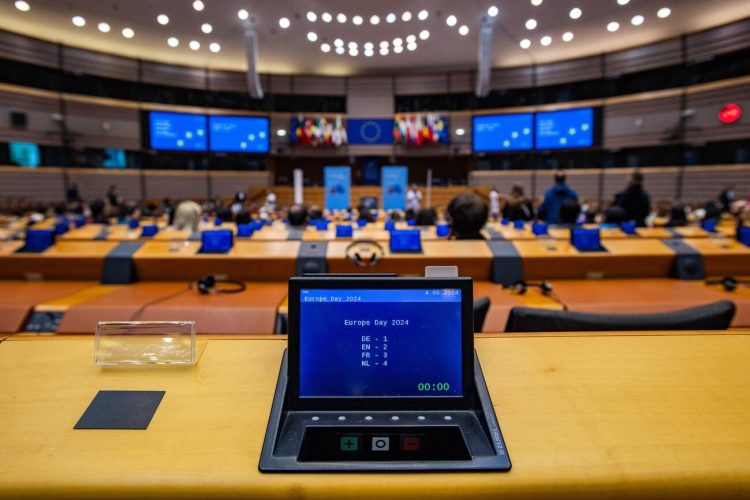The EU response to Israeli attacks raised awkward questions about where the bloc really stands. In the aftermath of Israel’s bombing inside Iran, tensions in the region heightened, and the European response revealed just how disjointed its foreign policy really is. They have also demonstrated Europe’s irregular approach to international law. Rather than a collective embrace or denunciation of multilateralism, the EU has employed a muted and sometimes self-contradictory rhetoric more characteristic of its geopolitical anxiety than of a values-based conception of human rights or traditional law. The response has been decried as hypocritical. The EU would have reacted differently if the attacker had not been its political ally.
EU Response to Israeli Attacks Rekindles Deep Divisions on Legitimacy and Law
The EU response to Israeli attacks has been anything but consistent, and that’s at the core of the current disagreement. After Israel hit a military site in Iran’s Isfahan region in April 2025, EU foreign ministers met in Brussels to talk things through and try to agree on a shared statement—but even that wasn’t easy. They went to no accord, though. Germany and the Netherlands headed a group of fifteen member states with similar ideology. These states supported text mentioning Israel’s “right to self-defense.” However, some countries, including Ireland, Spain, and Luxembourg, opposed the claim because they found no basis for the claim in international law. This deadlock led to the announcement of a statement which neither condemned nor supported Israel’s actions. Instead, it urged “restraint” and the “avoidance of escalation” in broad terms.
Legal vagueness and selective rationalization
Short of explicit backing, the fact that the EU failed to denounce the Israeli attacks sends a forceful message. Legal writers argue that by refraining from declaring the attack illegal, the EU de facto sanctioned the use of force. The Clingendael Institute, in its policy brief dated July 2025, stated that the EU response to Israeli attacks on Iran did not have a strong legal basis. Moreover, the response seemed to be politically oriented. The report states that the EU is prioritizing its relations with the US and Israel in its policy. In other words, it is disregarding international law. This is a move that weakens the credibility of the EU. It also damages its efficiency in resolving worldwide conflicts. Rather than using its diplomatic power to reduce tensions, the EU has stood by the wayside.
Human rights and international law are relegated to the periphery.
EU public debates have largely overlooked the principle of state sovereignty—a cornerstone of international law. While Belgian MEP Marc Botenga denounced Israel’s action as a “breach of the UN Charter,” he was a vocal lone voice in an ideologically and nationally fragmented European Parliament. His assertion, “No state may unilaterally breach international law,” echoed arguments adopted by NGOs and legal experts long enough to become a near truism. The EU’s combined response to Israeli airstrikes showed no mirror to that belief. Iran commonly reported civilian casualties and damage to infrastructure. However, the EU scarcely referred to human rights in its statements. This silence is in contrast with the Union’s reaction to other recent crises. For instance, in the case of Russia-Ukraine war or the conflict in Syria, the EU showed immediate reaction. It strongly condemned the violence and rights violations right away.
Diplomatic credibility at stake
Iran reacted to the EU position quickly. Tehran called Europe’s statements “cowardly and complicit,” and added that Europe’s statements further disabled diplomatic talks. EU former ambassador Enrique Mora warned that Europe’s seeming solidarity with Israel and the US might drive Iran away from diplomacy and towards war. With eroded trust, the EU stands at the periphery of regional forums, reducing its soft power. Regional states, both allies and adversaries alike, are observing how the EU will determine its reaction on principle and when it can remain silent. Until the EU demonstrates consistency in standing on its principles, other international actors will stop respecting it as an effective mediator or peacebuilder in future conflicts.
Consequences for regional stability
In addition to its political implications, EU uncertainty has other impacts on regional stability. Israeli attacks on Iran threaten to invite Iranian retaliatory strikes. They may also lead to the collapse of nuclear non-proliferation treaty. The EU, the prime co-architect of the 2015 JCPOA, is now a witness to the event. Without a united position, the European Union cannot assist in resolving differences constructively. Moreover, a weak EU reaction to Israeli attacks may cause other regional countries to settle differences by war. If the EU aims to influence security in the Middle East, it must establish a standard foreign policy based on law and diplomacy.
Broken assurances and lost moral leadership
The EU’s consistent assurance to defend human rights and international law sounds hollow today. The EU assured itself of salvaging the deal and maintaining a balanced attitude towards Iran following the US pullout from the JCPOA in 2018. The bloc has failed to condemn the invasion of Iranian sovereignty, which is contrary to this assurance. The EU response to Israeli attacks is evidence of an unfortunate trend. Faced with friends’ evil, moral vision frequently gives way to muteness. This selective use of values corrodes the EU as a values-driven union. European and international public confidence is being lost. Citizens are beginning to question whether those who once promoted a ‘rules-based international order’ truly believe in it themselves. If the EU continues to act in this manner, it will lose its moral leadership.
The EU Response to Israeli Attacks: A Clear Gap Between Principles and Practice
The EU response to the Israeli attack shows disconnect between the practice and professed values of the Union. The EU’s silence about the violation of Iranian sovereignty is an instance of disregard for international law. With obvious breaches of international law, the EU loses credibility and authority. Following the principles of sovereignty, and international law, and respecting all civilian lives are compulsory. The EU needs to do act accordingly to re-establish its credibility.





























